20 Home Remedies To Get Rid Of Cold Sores And Prevention Tips
Bid your blisters goodbye with an effective mix of topical creams and natural ingredients.
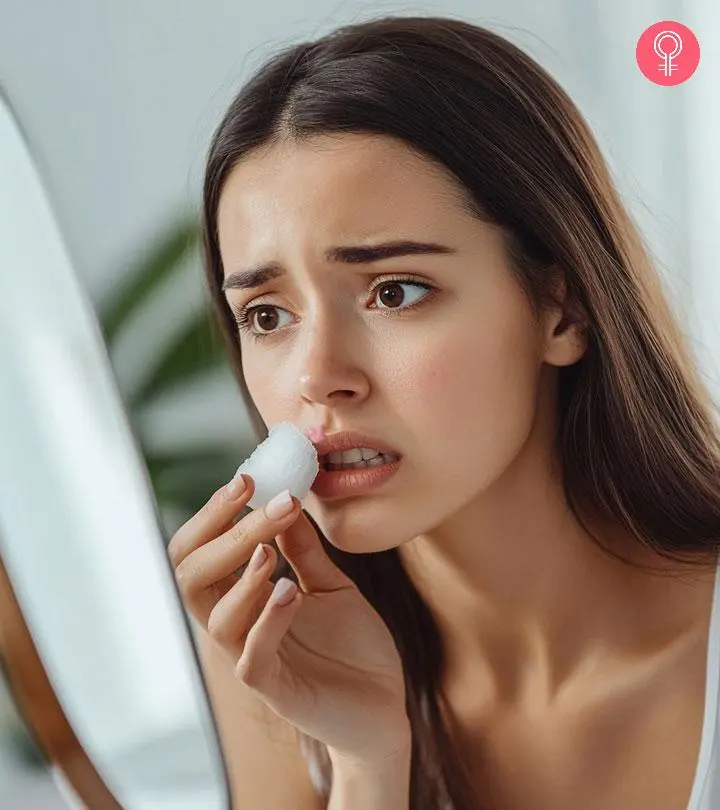
Image: Midjourney/ StyleCraze Design Team
Cold sores are fluid-filled blisters commonly seen around the mouth or on the side of the lips (1). Caused by the Herpes Simplex Virus 1 (HSV-1), cold sores break and ooze out pus, leaving white crusts all over the mouth. While it takes two to four weeks for the sores to heal on their own, the good news is that there are some home remedies you can try to get rid of those cold sores faster. Unsightly and painful, cold sores are transmitted through close contact with an infected person through kissing or oral sex. After contracting the infection, people may develop cold sores within a few days with accompanying symptoms such as fever, fever blisters, and a headache. Consulting a doctor is the best solution as they may recommend antiviral medications along with some natural remedies you can try at home to get rid of the sores quicker. In this article, we explore a few natural remedies you can use to alleviate and prevent the recurrence of cold sores.
In This Article
Home Remedies For Cold Sores – How To Treat Cold Sores Naturally
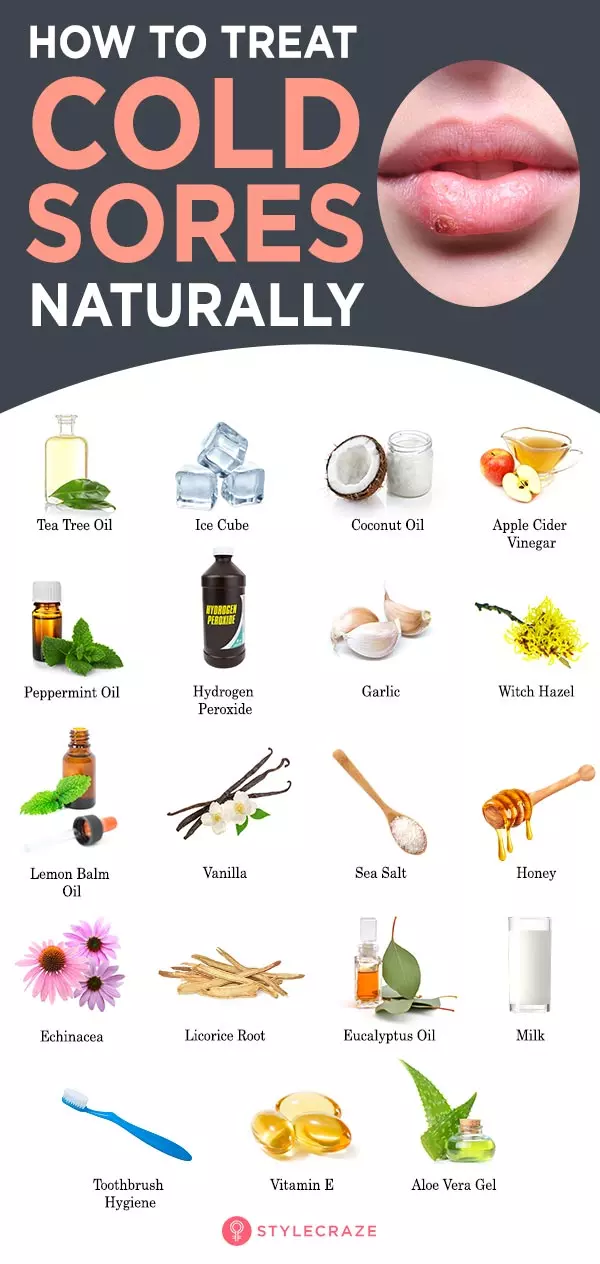
These home remedies may not work for everyone. We suggest you consult a healthcare provider and opt for the prescribed antiviral medications for faster results.
1. Tea Tree Oil
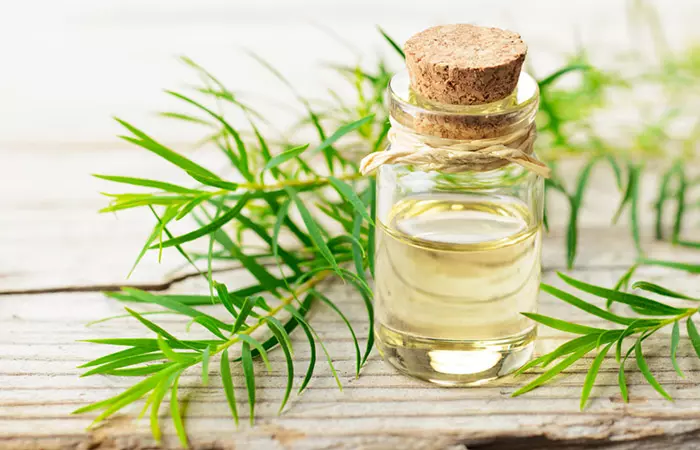
Tea tree oil is one of the many home remedies for herpes and cold sores. It possesses strong antiviral properties that can kill the infection-causing virus (herpes simplex virus) and speeds up the healing process (2).
You Will Need
- Tea tree oil
- Cotton swab
What You Have To Do
Dab some tea tree oil on the cotton swab and apply it directly to the sore.
How Often You Need To Do This
Repeat this several times during the day and before you go to sleep.
2. Ice Cubes
Ice can reduce swelling (3). It may help ease the inflammation caused by the cold sores.
You Will Need
An ice cube (an ice pack will also help)
What You Have To Do
Hold the ice cube on the cold sore to reduce the swelling and itching. Avoid scratching it.
How Often You Need To Do This
Repeat this several times during the day.
3. Apple Cider Vinegar
Apple cider vinegar exhibits antimicrobial and antibacterial activities (4), (5). It can help in preventing further infection in the affected area and removing the cold sores once they have reached the scabbing stage.
You Will Need
- Apple cider vinegar
- Cotton swabs
What You Have To Do
- Apply ACV on the cold sore with the cotton swab.
- Leave it on until it dries.
How Often You Need To Do This
You may repeat this 3 times a day.
4. Peppermint Oil
Peppermint oil exerts high levels of virucidal activity against herpes simplex virus (6). A study concluded that peppermint oil might be suitable for topical use in cases of recurrent herpes infection. Regular application of this oil is one of the best ways to get rid of cold sores.
You Will Need
- Peppermint oil
- Cotton ball
What You Have To Do
- Dab some peppermint oil on a cotton ball and apply it directly to the cold sore.
- Leave it on for 15-20 minutes before rinsing it off with water.
How Often You Need To Do This
You can do this 3 times a day.
5. Kanuka Honey
Kanuka honey (native to New Zealand) has antiviral and wound promoting properties (7). It can not only heal the infected sore but also soothe inflamed and irritated skin.
You Will Need
1/2 teaspoon of honey
What You Have To Do
- Apply honey on the cold sore with your fingertip.
- Leave it on for 5-7 minutes.
- Rinse with water.
How Often You Need To Do This
Do this 2 times a day.
6. Coconut Oil
Coconut oil is a potent antimicrobial agent (8). It contains triglycerides, like lauric acid, that can kill the virus and eliminate the cold sores (9),(10). However, coconut oil alone cannot make the cold sores disappear completely. You need to use a more effective medicine for beneficial results.
You Will Need
- Coconut oil
- Cotton swab
What You Have To Do
- If you feel a cold sore developing, apply coconut oil directly on it with a cotton swab.
- Leave it on.
How Often You Need To Do This
You can repeat the application every hour.
7. Lemon Balm Oil
Lemon balm (Melissa officinalis) oil heals wounds and has antiviral properties. It can eliminate the infection-causing virus and heal the sore quickly (11).
You Will Need
- Lemon balm oil
- Cotton swab
What You Have To Do
- Apply the oil directly to the cold sore with the cotton swab.
- Allow it to dry on its own.
- You can also rinse it off your skin 15-20 minutes after application.
How Often You Need To Do This
Apply the oil 3 times a day.
8. Hydrogen Peroxide
Wondering if hydrogen peroxide is a cure for cold sores? It may help in the inactivation of various virus strains (12). It can stop bleeding, dry the sore out, and shrink it.
You Will Need
- Hydrogen peroxide
- Cotton
What You Have To Do
Dab hydrogen peroxide on a piece of cotton and apply it to the sore.
How Often You Need To Do This
Reapply every 2 to 3 hours.
9. Garlic
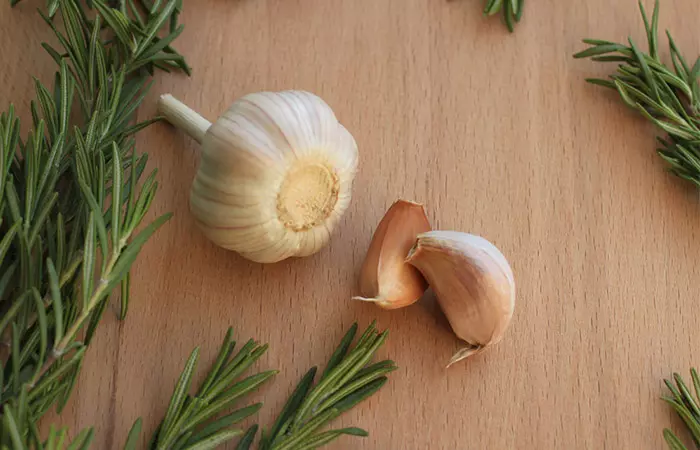
Garlic extracts and compounds were shown to have a virucidal effect on herpes simplex virus type 1 (13). This is a simple home remedy to take care of the cold sore without having to shell out a lot of money.
You Will Need
A small garlic clove
What You Have To Do
- Take the garlic clove, crush it, and apply it directly to the lesion.
- You can also consume raw garlic on an empty stomach, early in the morning, for best results.
How Often You Need To Do This
Apply this 2-3 times a day.
10. Witch Hazel
Witch hazel has anti-inflammatory, antibacterial, and astringent properties (14), (15). Hence, it may assist in healing cold sores and also reduce swelling and pain.
Caution: Witch hazel can irritate sensitive skin, so do a patch test near your elbow before you use this remedy.
You Will Need
- Witch hazel
- Cotton ball
What You Have To Do
- Apply the witch hazel solution to the cold sore with a clean cotton ball.
- Allow it to dry.
How Often You Need To Do This
Apply this 1-2 times a day.
11. Vanilla
Pure vanilla extract contains 35% alcohol (16). It works in a manner similar to rubbing alcohol, which makes it difficult for the microbes to grow and thrive (17).
You Will Need
- Pure vanilla extract
- Cotton swab
What You Have To Do
- If you feel the tingle that marks the onset of the sore, soak a cotton swab in vanilla extract and apply it to the sore.
- Hold it for a few minutes and then remove it.
How Often You Need To Do This
Apply this extract 4-5 times a day.
Tamisha Denis, a dentist, detailed her experience of using vanilla extract to treat cold sores overnight in her video. She also alternatively used an ice pack to control the cold sores. She said, “I promise you the next day when I woke up, there was nothing (i).”
12. Sea Salt
Salt has antimicrobial and virus inactivation properties (18). This may help in treating cold sores.
You Will Need
A pinch of sea salt
What You Have To Do
- Using a clean finger, apply sea salt directly on the cold sore.
- Hold it in place for 30 seconds.
How Often You Need To Do This
Repeat this 2-3 times a day.
13. Echinacea
Echinacea strengthens the body’s immune system and helps it fight the viral infection (19).
You Will Need
- 1 echinacea tea bag
- A cup of boiling water
What You Have To Do
- Steep the teabag in boiling water for 10 minutes.
- Drink this tea while it is warm.
How Often You Need To Do This
Drink 2-3 cups of this herbal tea in a day.
Note: Discontinue drinking the tea once the cold sore has healed.
14. Licorice Root
Licorice root contains glycyrrhizin, which can inhibit the growth and replication of the virus (20),(21). Together with the petroleum jelly, it can speed up the healing process of the cold sore.
You Will Need
- 1 tablespoon licorice root powder
- 1-2 tablespoons petroleum jelly
What You Have To Do
- Mix the licorice root powder in the jelly to form a gooey paste.
- Apply this on the cold sore and let it dry.
How Often You Need To Do This
Reapply every few hours.
15. Propolis
Propolis is a resin-like material made by bees. It is used for reducing swelling and sores inside the mouth (oral mucositis) (22). It is rich in antioxidants and is known to have antiviral properties. It can help prevent the herpes simplex virus from multiplying (23).
It is available in a 3% concentration in liquid and capsule forms, which can be purchased online or at your local pharmacy.
16. Eucalyptus Oil
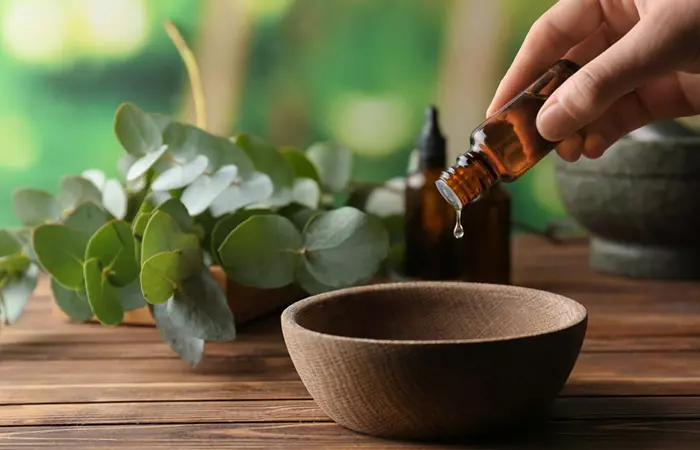
Eucalyptus oil can kill the herpes simplex virus effectively and aid quicker healing of the cold sore (24).
You Will Need
- Eucalyptus oil
- Cotton swab
What You Have To Do
- Apply the oil to the cold sore with a clean cotton swab.
2. Leave it on until it dries.
How Often You Need To Do This
Repeat this every hour.
17. Aloe Vera Gel
The antiviral properties of aloe vera and its soothing nature make it a potential remedy for treating cold sores (25).
You Will Need
- Aloe vera gel (as required)
- Cotton swabs
What You Have To Do
- Take a little aloe vera gel on a cotton swab.
- Apply it gently to the sores.
- Leave it on until it dries.
How Often You Need To Do This
Do this 2-3 times daily.
18. Vitamin E
The anti-inflammatory nature of vitamin E can help in soothing the swelling, inflammation, and pain associated with the cold sores. Oral intake of the vitamin can further help prevent recurring viral infections (26), (27).
You Will Need
- Vitamin E oil or capsule
- Cotton swabs
What You Have To Do
- Soak the cotton swab in vitamin E oil and apply it to the cold sore.
- You can also prick a vitamin E capsule and use the liquid.
- Leave it on to dry.
- You can also increase your intake of vitamin E-rich foods.
How Often You Need To Do This
Do this multiple times a day.
19. Milk
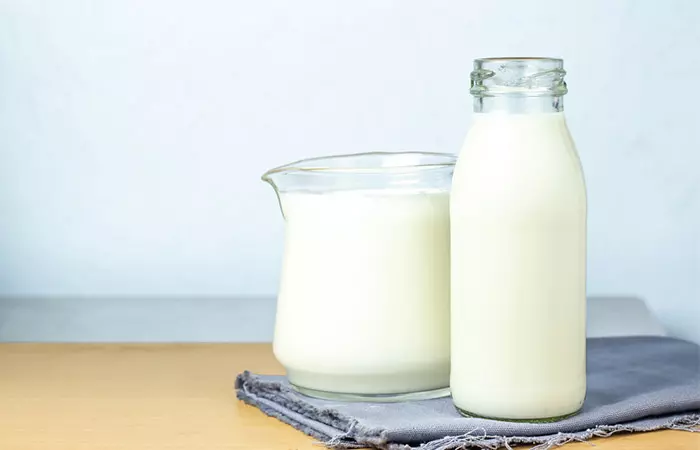
Milk has antiviral and antibacterial properties (28). It can help in not only clearing the infection but also in soothing your skin.
You Will Need
- 1 tablespoon milk
- Cotton ball
What You Have To Do
- Soak the cotton ball in milk and apply it to the cold sore.
- Hold it in place for a couple of minutes.
How Often You Need To Do This
Do this every two hours.
20. Vaseline
Vaseline doesn’t necessarily heal a cold sore, but it may help prevent cracking and ease any discomfort caused by the sores (29).
You Will Need
Vaseline
What You Have To Do
Dab a small amount of Vaseline on your lips and let it sit for a while.
How Often You Need To Do This
Do this every 2-3 hours.
In addition to trying out these remedies, you can consume foods rich in lysine, like dairy products, milk, soybeans, lentils, chickpeas, quinoa, chicken, seafood, egg, and poultry to aid healing cold sores. Avoid foods rich in arginine, like nuts, pumpkin seeds, chocolates, spirulina, oats, and wheat.
Caution
If you are pregnant or have a chronic medical condition and are under a doctor’s supervision, consult your doctor before undertaking any kind of treatment.
Note: Many of these remedies are applied to the cold sore directly. Do not try all the remedies at one go, or you may end up irritating or causing a burning sensation around the cold sore. Choose one or two remedies and assess if they are working before moving on to another one.
Key Takeaways
- Skin conditions like eczema and HIV/ AIDS may increase the risk of getting cold sores.
- Fluid-filled blisters or burning sensations are a few symptoms of cold sores.
- Rubbing ice or aloe vera on the affected areas may provide relief.
- Maintain good hygiene and avoid contact with the infected individuals to prevent the spread of cold sores.
Medical Treatments For Cold Sores
If your cold sore is extremely painful, your doctor might prescribe antiviral oral medication to speed up the healing. Consult a healthcare provider to see which of the following treatments might work for you.
Prescription Medicines
- Acyclovir (Zovirax) (30)
- Famciclovir (Famvir) (31)
- Valacyclovir (Valtrex) (32)
- Penciclovir (Denavir) (33)
Some of these products are available as pills, while others are creams that have to be applied to the sores several times a day. In general, the pills work better than creams.
Alternative Medicines For Cold Sores
Consult a healthcare provider before taking any of these supplements:
1. Lysine (Over-The-Counter Cream)
Lysine is an amino acid available in the form of oral supplements or a cream. Although it is widely used to treat cold sores, there are insufficient studies to prove its efficacy in killing HSV. However, it can be used to help manage the symptoms of cold sores (34).
2. Rhubarb And Sage Cream
This herbal cream is as effective as topical Acyclovir cream for treating cold sores (35).
 Trivia
TriviaSometimes, people confuse pimples with cold sores, as they may appear near your lips. However, you can easily differentiate between a cold sore vs. a pimple by looking at the former’s symptoms. The signs and symptoms of cold sores are listed below.
Signs And Symptoms
- A tingling, itching, or burning sensation on the skin before the appearance of the sores.
- Small fluid-filled blisters.
- Merging of blisters, followed by their bursting and oozing that will eventually crust over. They may also crust over without breaking.
Usually, during the first outbreak, individuals may experience other symptoms like:
- Fever
- Ulcerated and/or painful gums
- A sore throat
- Headache
- Muscle aches
- Swelling of the lymph nodes
Children under 5 years can also develop cold sores inside their mouths or nostrils.
Many factors can play a significant role in triggering cold sores. The following section lists the causes and risk factors.
Causes And Risk Factors
The main causes of cold sores are some strains of the herpes simplex virus (HSV). HSV-1 is commonly associated with the onset of cold sores, while HSV-2 causes genital herpes. Both can cause sores in the facial area as well as the genitals.
As per WHO’s estimates from 2016, an estimated 3.7 billion 67% of the global population or people under the age of 50 have HSV-1 infection (Herpes Simplex Virus-1). On the other hand, 491 million people aged 15-49 or 13% of the global population have HSV-2 (Herpes Simplex Virus-2).
Once you have had an episode of the herpes infection, the virus continues to remain dormant in your nerve cells (in your skin) and can recur in the same place over and over due to improper stress management.
Some common factors that can trigger a recurrence include:
- Fever
- Viral infection
- Hormonal imbalance
- Fatigue and stress
- Direct exposure to the sun and wind
- A weak immune system
- Hot and ice cold plunges
Factors that may increase your risk of developing cold sores are:
- HIV/AIDS
- Burns
- Medical conditions like eczema
- Treatments like chemotherapy
- Anti-rejection drugs (given during organ transplants)
- Dental work that irritates the lips
- Cosmetic procedures – laser peels, injections near the lips
These factors can increase your risk of developing cold sores, especially after a previous outbreak.
Although cold sores can heal on their own, they may take up to four weeks to go away completely. Here are some first aid tips to aid faster recovery.
How To Prevent Cold Sores
- If you have been prescribed antiviral medications (ointments), use them regularly.
- Apply sunblock daily.
- Avoid direct skin-to-skin contact with people who have cold sores.
- Avoid sharing utensils and lip products, towels, lip balms, etc., with the affected individual.
- Wash your hands frequently and do not pick or pop the sore.
- Manage your stress levels. Practice stress-reduction techniques like meditation, deep breathing, or yoga to help maintain a calm and balanced state.
- Do not have oral sex. Wait until the blisters heal.
- Change your toothbrush if you develop a cold sore as it could harbor germs and may even spread the virus. It is better to get a new toothbrush once the sore has healed.
- Consume plenty of fruits, vegetables, whole grains, and lean proteins to boost immunity.
- Identify your personal triggers for cold sores, such as sun exposure, fatigue, or emotional stress, and take steps to minimize these triggers whenever possible.
Note:
Cold sores must not be left untreated for too long. If left unattended, they could lead to the following complications.
The virus that triggers cold sores can also cause issues in the other parts of the body in a few individuals:
- Both HSV-1 and HSV-2 can spread from around the mouth to the fingertips. This kind of infection is referred to as herpes willow. It is especially common in children who suck their thumbs.
- The virus can also cause an eye infection. Repeated herpes eye infections can cause scarring or injury, leading to vision problems and blindness.
- Individuals with eczema are at an increased risk of the cold sores spreading all over their bodies. This is very rare but can lead to a medical emergency.
- The virus can also affect the spinal cord and brain in those with a compromised immune system.
Cold sores are often compared with canker sores. But the two conditions are different. Learn more in the next section.
Cold Sore Vs. Canker Sore
| Characteristic | Cold Sores | Canker Sores |
| Cause | Typically caused by the herpes simplex virus (HSV-1), and occasionally by HSV-2 | Multifactorial, including minor trauma, stress, and certain foods |
| Appearance | Fluid-filled blisters, often with a red border | Round or oval sores with a white/yellow center and red border |
| Location | On or around the lips | Inside the mouth, on soft tissues |
| Communicability | Highly contagious during an active outbreak | Not contagious |
| Healing Time | 7-10 days | Typically 1-2 weeks |
| Recurrence | Can recur periodically | May recur once in a few months |
| Treatment | Antiviral medications and over-the-counter creams | Over-the-counter gels, topical creams, and home remedies for pain relief |
 Did You Know?
Did You Know?Discover effective techniques for swift and efficient treatment of cold sores. Check out the informative video below to obtain valuable tips to alleviate discomfort and accelerate the healing process.
Cold sores are bacterial pus-filled blisters that usually develop on or around the lips. Though usually harmless, these can cause major discomfort and inconvenience while eating or drinking anything. While the home remedies mentioned above can help you get rid of cold sores safely, it is important to maintain basic hygiene to prevent its occurrence in the first place.
Frequently Asked Questions
How long do cold sores last?
Cold sores typically last about 7 to 10 days. During the first few days, they may appear as small, red bumps that can become painful blisters. The blisters may eventually rupture, crust over, and heal.
Do you keep a cold sore dry or moist?
Dr. Peter Michael, MD, says, “Cold sores should be kept dry and the area should be gently cleaned with mild soap and water.”
Should you pop a cold sore?
Dr. Michael says, “It is not recommended to pop a cold sore as this can cause inflammation and even infection.”
Does rubbing alcohol help cold sores?
According to Dr. Michael, “Rubbing alcohol is not an effective treatment for cold sores, but some topical ointments may help accelerate healing.”
How do you make cold sores go away in 24 hours?
Cold sores do not go away in 24 hours, but the itching, and pain associated with them can be relatively lessened by using home remedies or antiviral medications, including topical antiviral creams. These can also speed up the recovery process and help heal the sores fast.
Do cold sores mean you have an STD?
No, having cold sores does not necessarily mean that an individual has an STD as these sores are not typically sexually transmitted. Non-sexual physical contact can transmit the herpes simplex virus that affects the lips.
Does toothpaste help cold sores?
Yes, the presence of sodium lauryl sulfate (SLS) in toothpaste can help improve the pain and blistering associated with cold sores and may also facilitate the healing process.
Illustration: Home Remedies To Get Rid Of Cold Sores And Prevention Tips
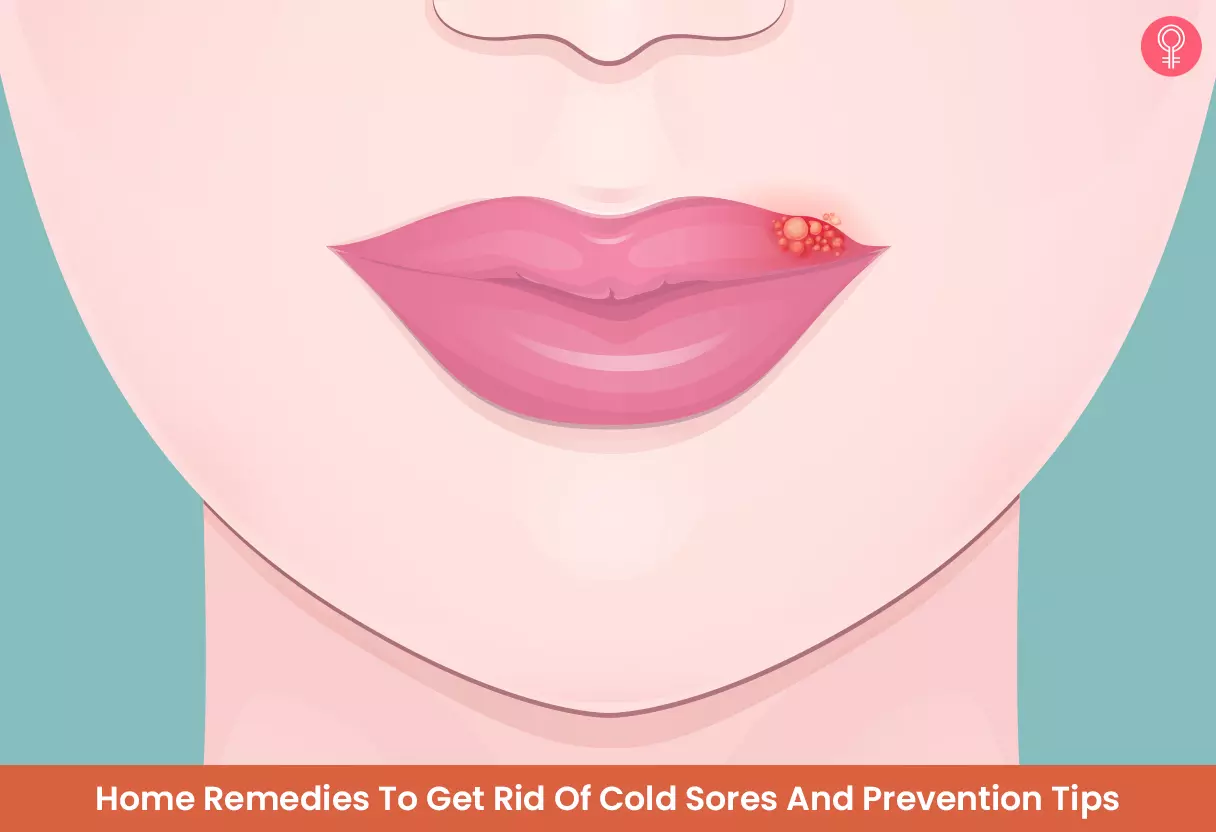
Image: Stable Diffusion/StyleCraze Design Team
Personal Experience: Source
StyleCraze's articles are interwoven with authentic personal narratives that provide depth and resonance to our content. Below are the sources of the personal accounts referenced in this article.
(i) How to Heal and Cure a Cold Sore Overnight….Fast, Natural, and It Works!!
https://youtu.be/_o58po7Uj3Y?feature=shared
References
Articles on StyleCraze are backed by verified information from peer-reviewed and academic research papers, reputed organizations, research institutions, and medical associations to ensure accuracy and relevance. Read our editorial policy to learn more.
- Cold sores: Overview, National Center for Biotechnology Information, National Institutes of Health.
https://www.ncbi.nlm.nih.gov/books/NBK525782/ - Melaleuca alternifolia (Tea Tree) Oil: a Review of Antimicrobial and Other Medicinal Properties, Clinical Microbiology Reviews, US National Library of Medicine, National Institutes of Health.
https://www.ncbi.nlm.nih.gov/pmc/articles/PMC1360273/ - Ice reduces edema. A study of microvascular permeability in rats. The Journal of Bone and Joint Surgery, US National Library of Medicine, National Institutes of Health.
https://pubmed.ncbi.nlm.nih.gov/12208913/ - Vinegar: Medicinal Uses and Antiglycemic Effect, Medscape General Medicine, US National Library of Medicine, National Institutes of Health.
https://www.ncbi.nlm.nih.gov/pmc/articles/PMC1785201/ - Authenticating apple cider vinegar’s home remedy claims: antibacterial, antifungal, antiviral properties and cytotoxicity aspect. Natural Product Research, US National Library of Medicine, National Institutes of Health.
https://pubmed.ncbi.nlm.nih.gov/29224370/ - Virucidal effect of peppermint oil on the enveloped viruses herpes simplex virus type 1 and type 2 in vitro. Phytomedicine, US National Library of Medicine, National Institutes of Health.
https://pubmed.ncbi.nlm.nih.gov/13678235/ - Kanuka honey versus aciclovir for the topical treatment of herpes simplex labialis: a randomised controlled trial, BMJ Open, US National Library of Medicine, National Institutes of Health
https://www.ncbi.nlm.nih.gov/pmc/articles/PMC6530412/ - The antimicrobial activity of liposomal lauric acids against Propionibacterium acnes, Biomaterials, US National Library of Medicine, National Institutes of Health.
https://pubmed.ncbi.nlm.nih.gov/19665786/ - Lauric acid-rich medium-chain triglycerides can substitute for other oils in cooking applications and may have limited pathogenicity, Open Heart, US National Library of Medicine, National Institutes of Health.
https://www.ncbi.nlm.nih.gov/pmc/articles/PMC4975867/ - Development and evaluation of microbicidal hydrogels containing monoglyceride as the active ingredient, Journal of Pharmaceutical Sciences, US National Library of Medicine, National Institutes of Health.
https://pubmed.ncbi.nlm.nih.gov/10514348/ - Melissa officinalis oil affects infectivity of enveloped herpesviruses, Phytomedicine, US National Library of Medicine, National Institutes of Health.
https://pubmed.ncbi.nlm.nih.gov/18693101/ - [Virus inactivation by hydrogen peroxide], Voprosy virusologii, US National Library of Medicine, National Institutes of Health.
https://pubmed.ncbi.nlm.nih.gov/203115/ - Antiviral Properties of Garlic: In vitro Effects on Influenza B, Herpes Simplex and Coxsackie Viruses, Planta Medica, Thieme.
https://www.thieme-connect.com/products/ejournals/abstract/10.1055/s-2007-969553 - Antioxidant and potential anti-inflammatory activity of extracts and formulations of white tea, rose, and witch hazel on primary human dermal fibroblast cells, Journal of Inflammation, US National Library of Medicine, National Institutes of Health.
https://www.ncbi.nlm.nih.gov/pmc/articles/PMC3214789/ - Plants used to treat skin diseases, Pharmacognosy Reviews, US National Library of Medicine, National Institutes of Health.
https://www.ncbi.nlm.nih.gov/pmc/articles/PMC3931201/ - CFR – Code of Federal Regulations Title 21, DEPARTMENT OF HEALTH AND HUMAN SERVICES, U.S Food & Drug Administration.
https://www.accessdata.fda.gov/scripts/cdrh/cfdocs/cfcfr/cfrsearch.cfm?fr=169.175 - Comparative Study of Inactivation of Herpes Simplex Virus Types 1 and 2 by Commonly Used Antiseptic Agents, Journal of Clinical Microbiology, US National Library of Medicine, National Institutes of Health.
https://www.ncbi.nlm.nih.gov/pmc/articles/PMC266254/pdf/jcm00074-0065.pdf - Virus inactivation by salt (NaCl) and phosphate supplemented salt in a 3D collagen matrix model for natural sausage casings, International Journal of Food Microbiology, US National Library of Medicine, National Institutes of Health.
https://pubmed.ncbi.nlm.nih.gov/21632134/ - Echinacea purpurea polysaccharide reduces the latency rate in herpes simplex virus type-1 infections, Intervirology, US National Library of Medicine, National Institutes of Health.
https://pubmed.ncbi.nlm.nih.gov/19372701/ - The antiviral and antimicrobial activities of licorice, a widely-used Chinese herb, Acta pharmaceutica Sinica. B, US National Library of Medicine, National Institutes of Health.
https://www.ncbi.nlm.nih.gov/pmc/articles/PMC4629407/ - Glycyrrhizin increases survival of mice with herpes simplex encephalitis, Acta virologica, US National Library of Medicine, National Institutes of Health.
https://pubmed.ncbi.nlm.nih.gov/11394578/ - Propolis: A Wonder Bees Product and Its Pharmacological Potentials, Advances in Pharmacological Sciences, US National Library of Medicine, National Institutes of Health.
https://www.ncbi.nlm.nih.gov/pmc/articles/PMC3872021/ - Anti-herpes simplex virus effect of an aqueous extract of propolis. The Israel Medical Association Journal, US National Library of Medicine, National Institutes of Health.
https://pubmed.ncbi.nlm.nih.gov/12455181/ - Antiviral activity of Australian tea tree oil and eucalyptus oil against herpes simplex virus in cell culture. Die Pharmazie, US National Library of Medicine, National Institutes of Health.
https://pubmed.ncbi.nlm.nih.gov/11338678/ - Assessment of Anti HSV-1 Activity of Aloe Vera Gel Extract: an In Vitro Study, Journal of Dentistry, US National Library of Medicine, National Institutes of Health.
https://www.ncbi.nlm.nih.gov/pmc/articles/PMC4771053/ - The Role of Vitamin E in Human Health and Some Diseases, Sultan Qaboos University Medical Journal, US National Library of Medicine, National Institutes of Health.
https://www.ncbi.nlm.nih.gov/pmc/articles/PMC3997530/ - Selenium and vitamin E status: impact on viral pathogenicity, Journal of Nutrition, US National Library of Medicine, National Institutes of Health.
https://pubmed.ncbi.nlm.nih.gov/17449602/ - Antibacterial and antiviral effects of milk proteins and derivatives thereof, Current Pharmaceutical Design, US National Library of Medicine, National Institutes of Health.
https://pubmed.ncbi.nlm.nih.gov/12769735/ - Chapped lips, Medline Plus, US National Library of Medicine, National Institutes of Health.
https://medlineplus.gov/ency/article/002036.htm - Oral acyclovir (Zovirax) in herpes simplex dendritic corneal ulceration, The British Journal of Ophthalmology, US National Library of Medicine, National Institutes of Health.
https://www.ncbi.nlm.nih.gov/pmc/articles/PMC1041036/ - HIGHLIGHTS OF PRESCRIBING INFORMATION, Famvir (famciclovir) tablets label, U.S Food & Drug Administration.
https://www.accessdata.fda.gov/drugsatfda_docs/label/2011/020363s037lbl.pdf - High-Dose, Short-Duration, Early Valacyclovir Therapy for Episodic Treatment of Cold Sores: Results of Two Randomized, Placebo-Controlled, Multicenter Studies, Antimicrobial Agents and Chemotherapy, US National Library of Medicine, National Institutes of Health.
https://www.ncbi.nlm.nih.gov/pmc/articles/PMC149313/ - DENAVIR- penciclovir cream, Dailymed, US National Library of Medicine, National Institutes of Health.
https://dailymed.nlm.nih.gov/dailymed/lookup.cfm?setid=14d60b68-e5dd-475a-8517-576eb7894683 - Lysine for Herpes Simplex Prophylaxis: A Review of the Evidence, Integrative Medicine,
US National Library of Medicine, National Institutes of Health.
https://www.ncbi.nlm.nih.gov/pmc/articles/PMC6419779/ - Combined herbal preparation for topical treatment of Herpes labialis, Research in Complementary and Natural Classical Medicine, US National Library of Medicine, National Institutes of Health.
https://pubmed.ncbi.nlm.nih.gov/11799306/
Read full bio of Dr. Bhakti Kapse
- Dr. Peter Michael is a physician with 18 years of experience. He graduated from the University of Miami Miller School of Medicine and completed his internal medicine residency at Howard University Hospital and his physical medicine and rehabilitation (PM&R) at the University of Miami Miller School of Medicine.
 Dr. Peter Michael is a physician with 18 years of experience. He graduated from the University of Miami Miller School of Medicine and completed his internal medicine residency at Howard University Hospital and his physical medicine and rehabilitation (PM&R) at the University of Miami Miller School of Medicine.
Dr. Peter Michael is a physician with 18 years of experience. He graduated from the University of Miami Miller School of Medicine and completed his internal medicine residency at Howard University Hospital and his physical medicine and rehabilitation (PM&R) at the University of Miami Miller School of Medicine.
Read full bio of Shaheen Naser
Read full bio of Ramona Sinha
Read full bio of Swathi E





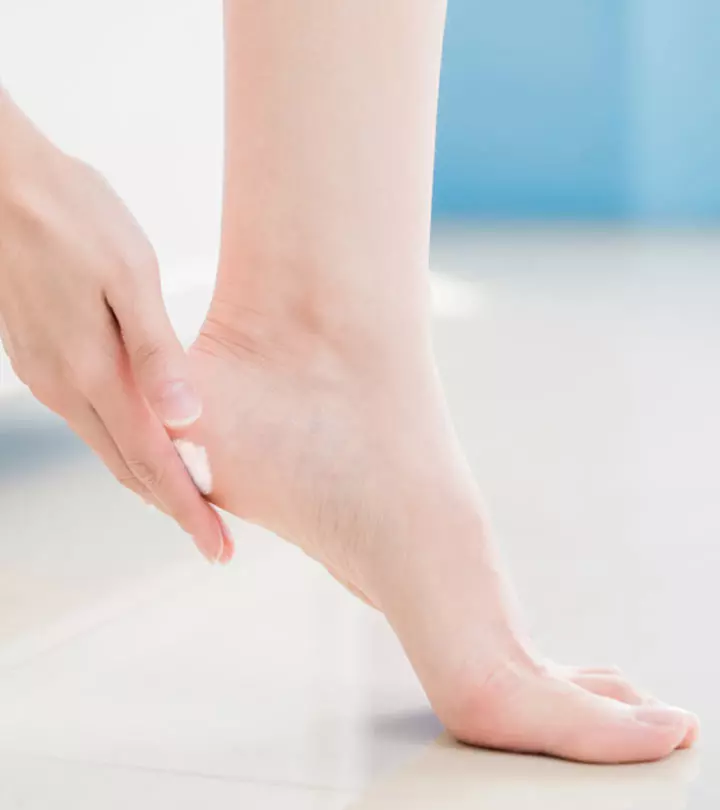
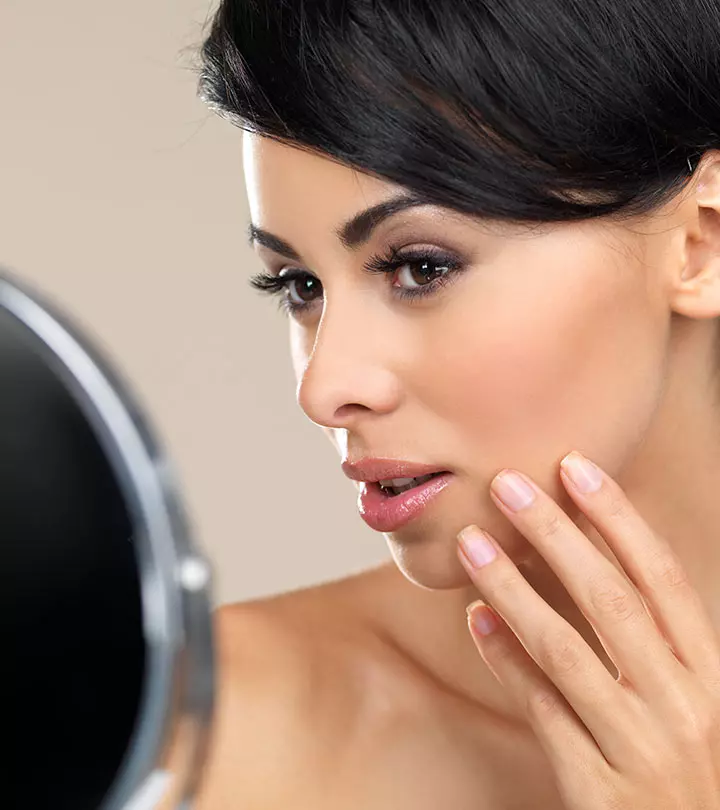

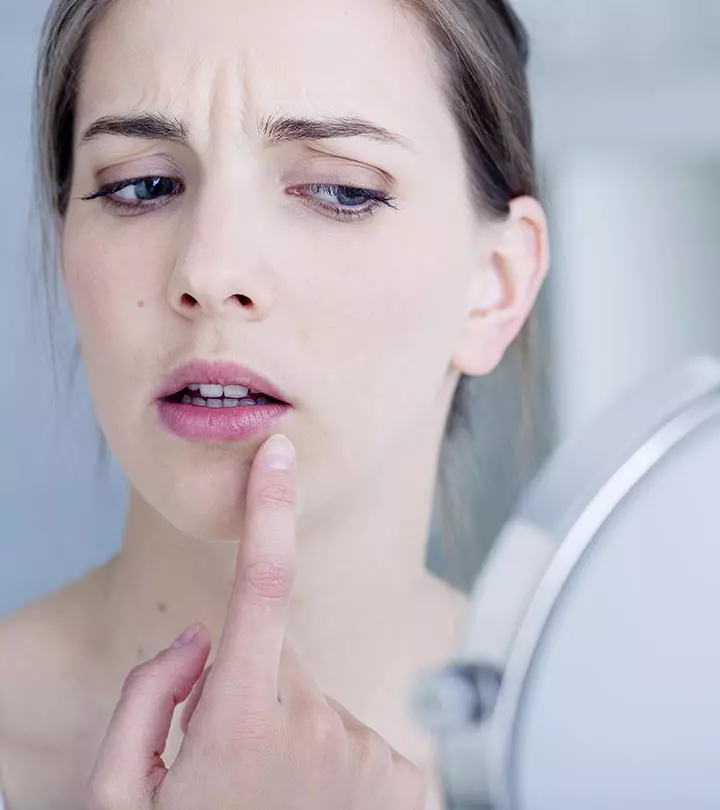
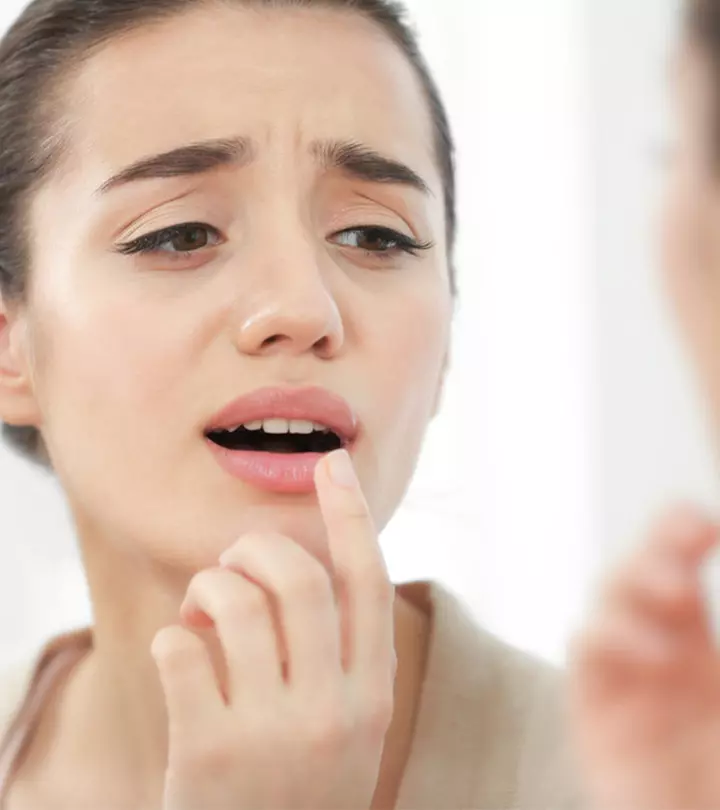
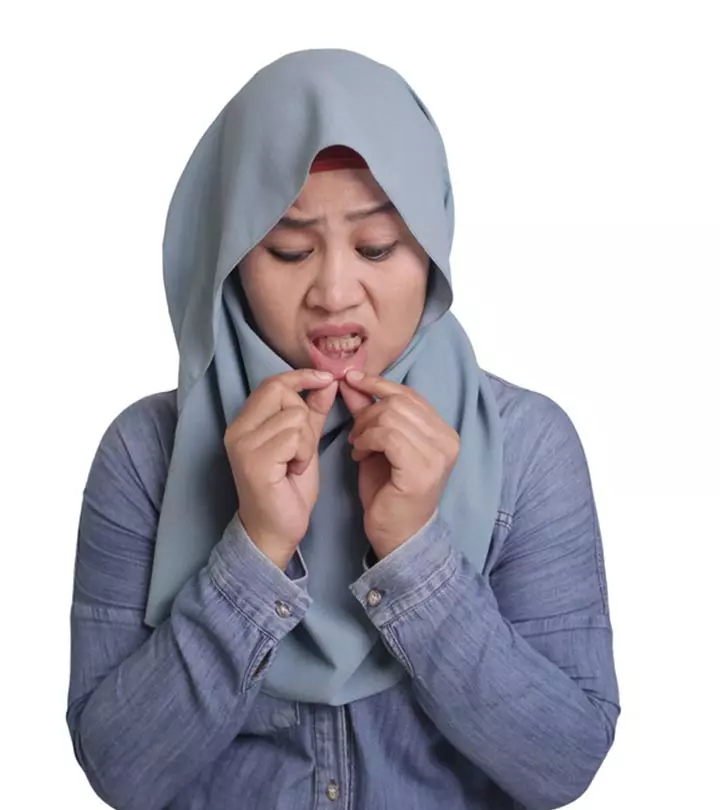
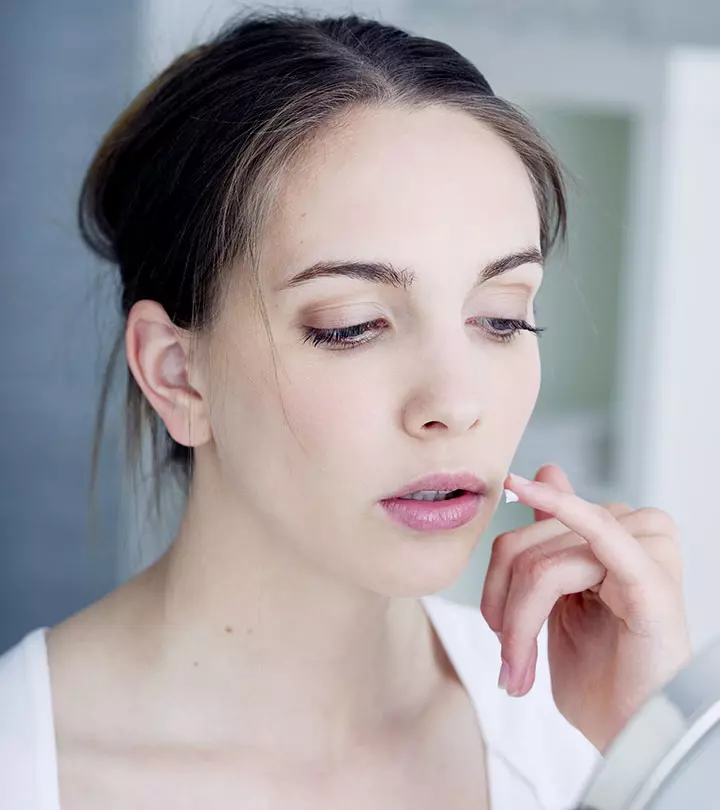
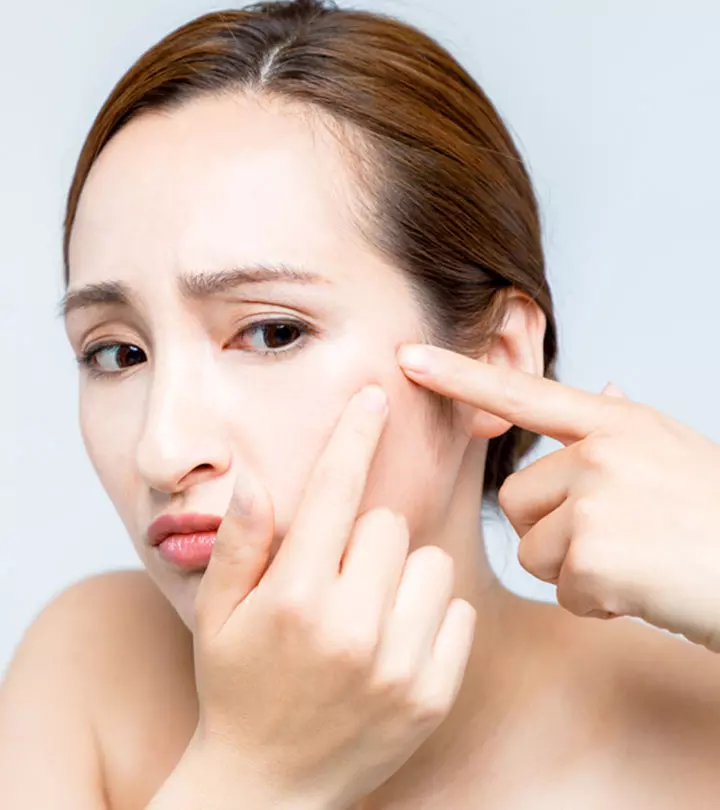
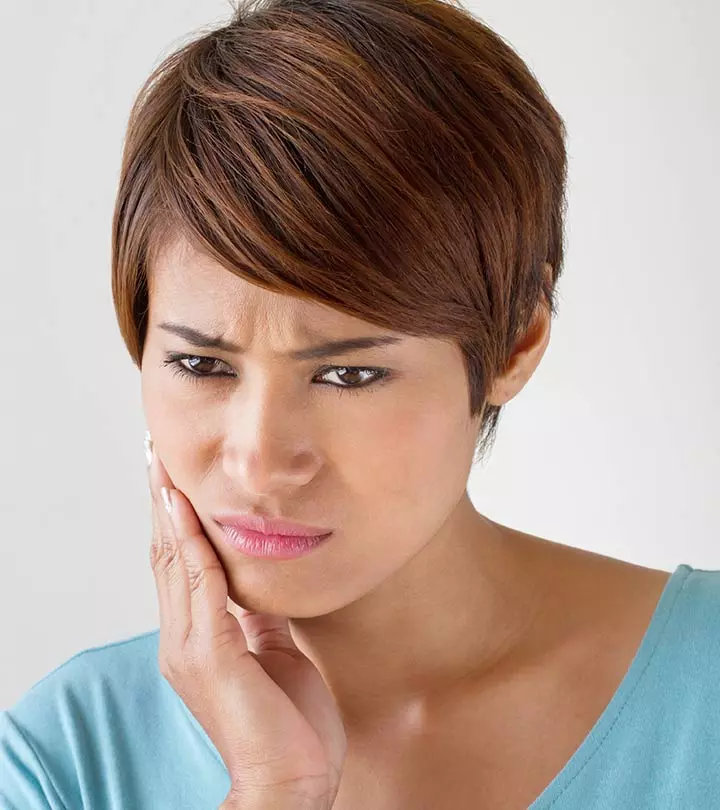
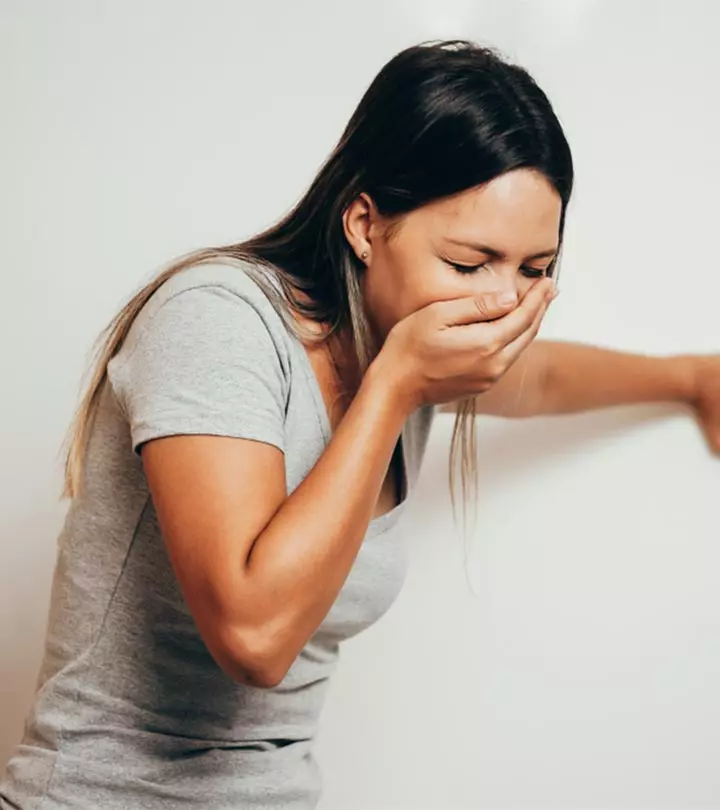
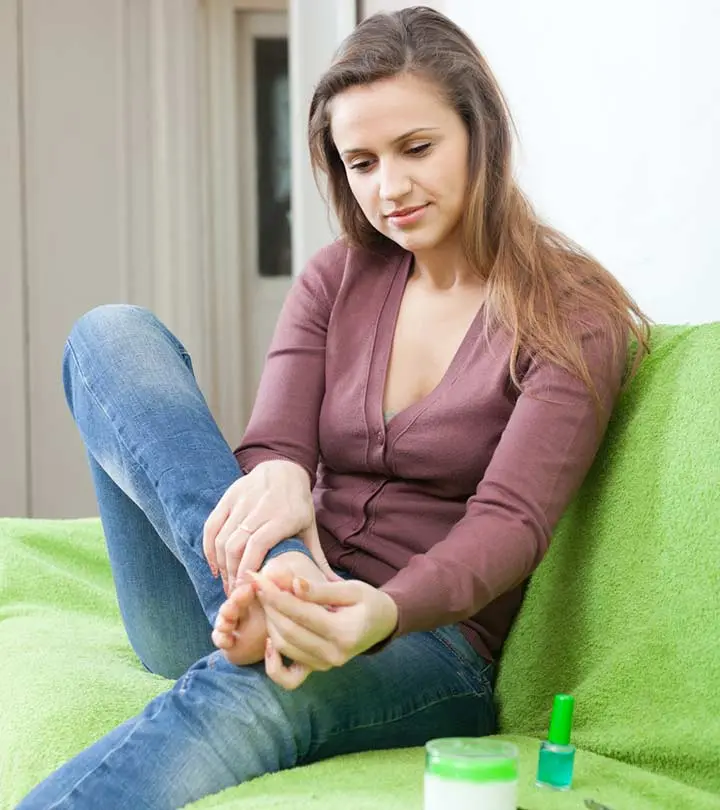
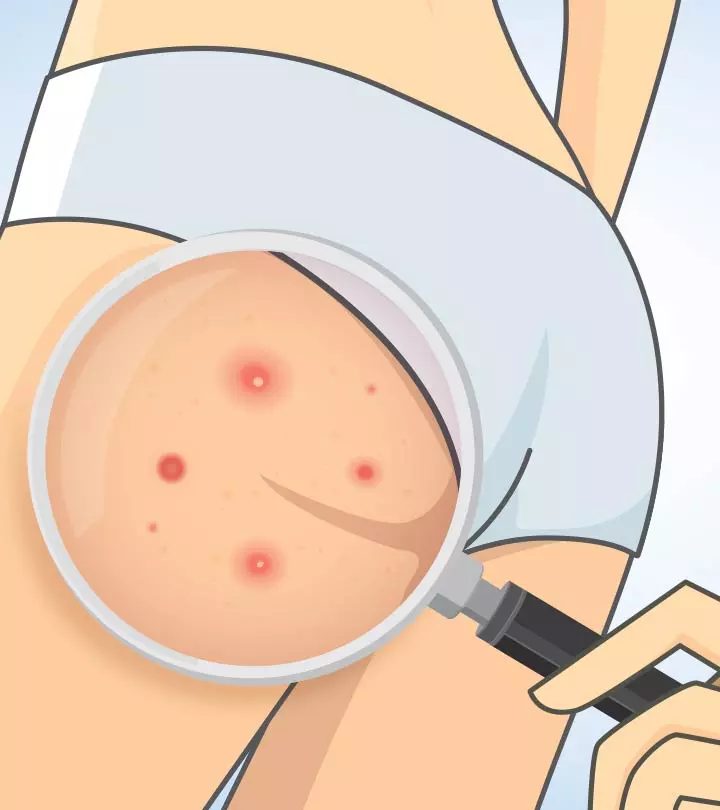
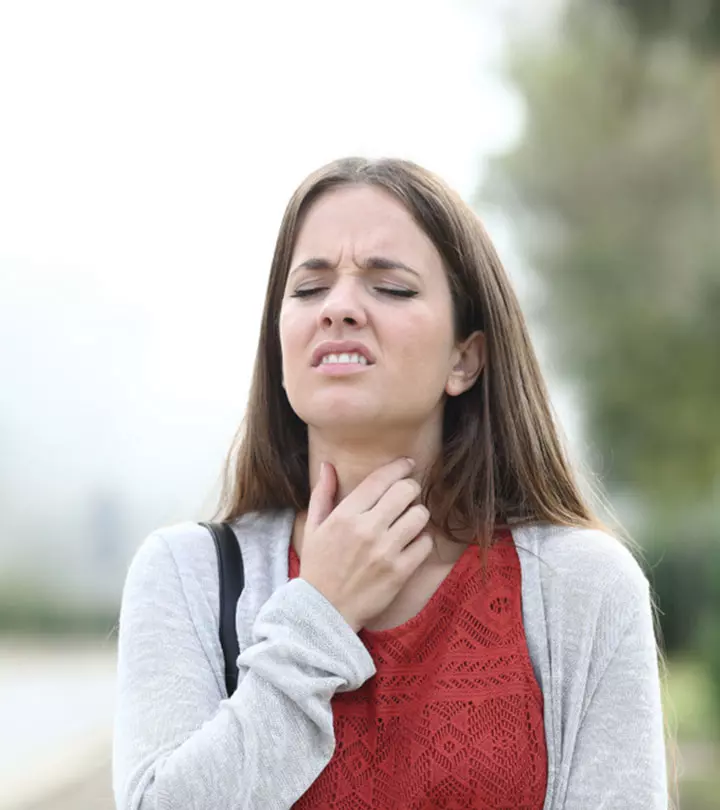
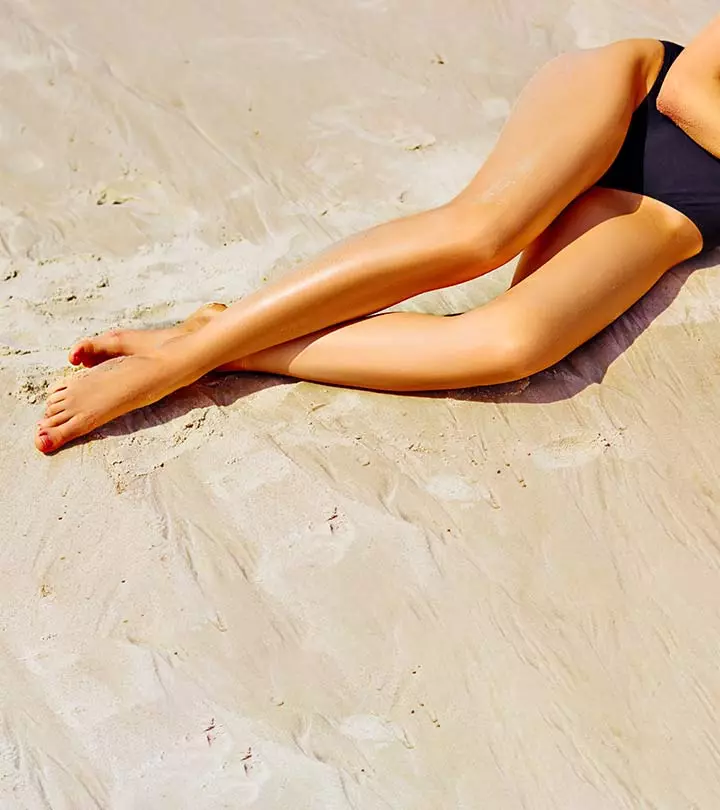
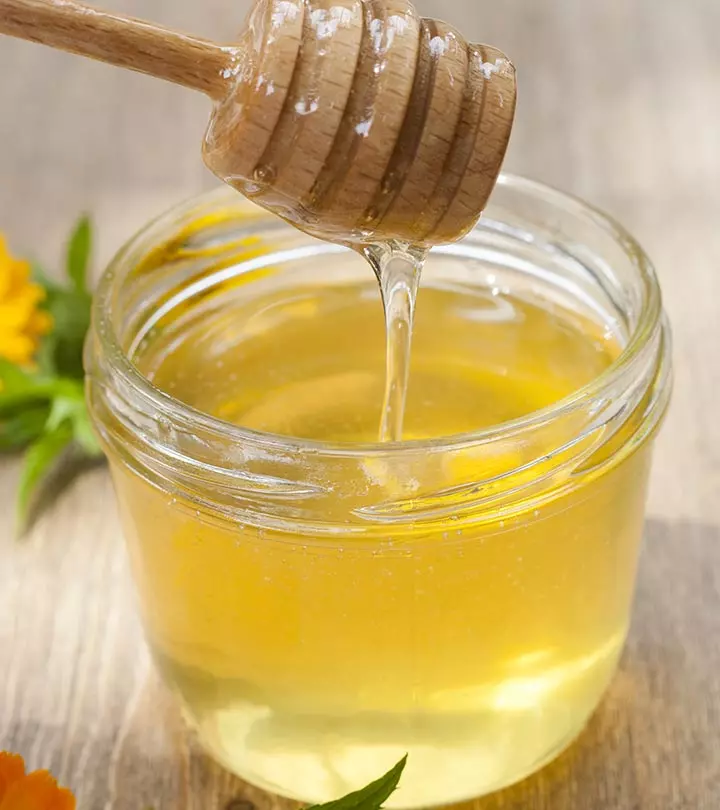
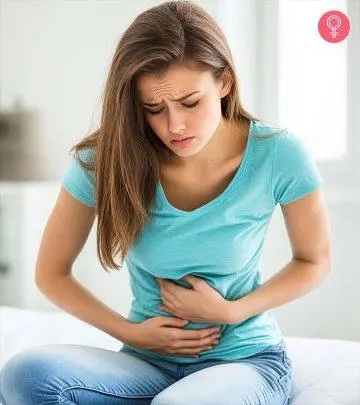
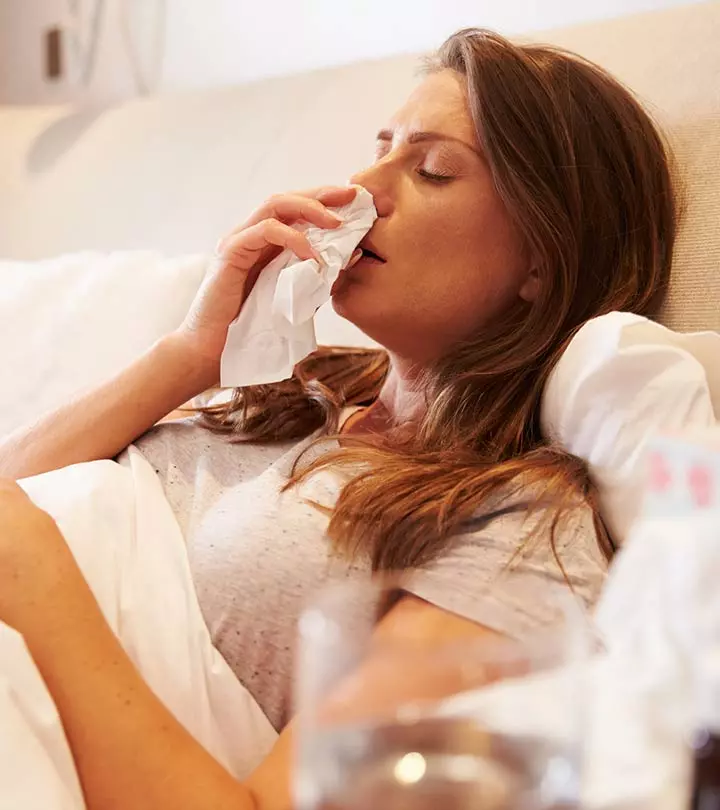
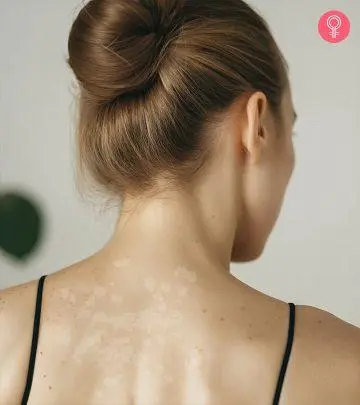
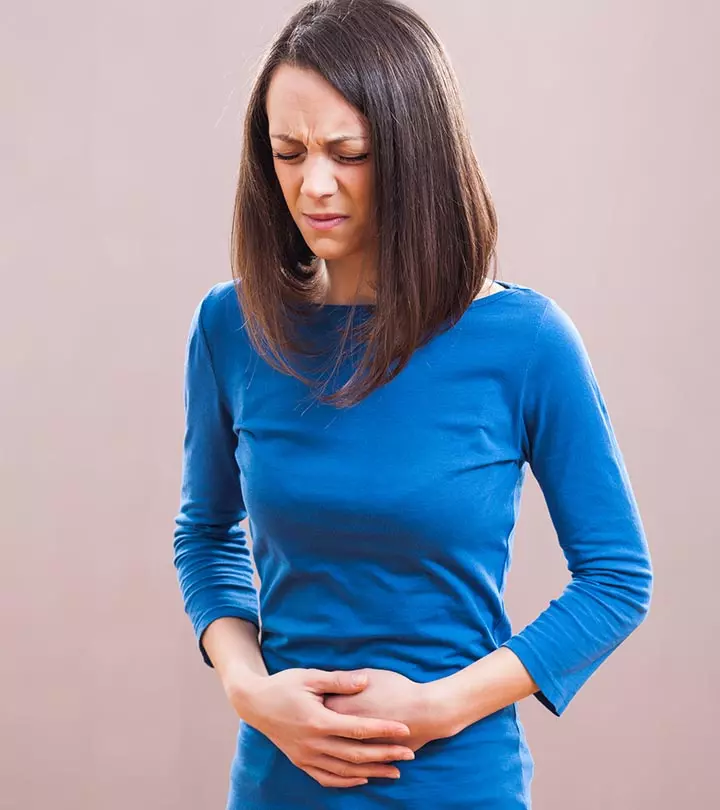
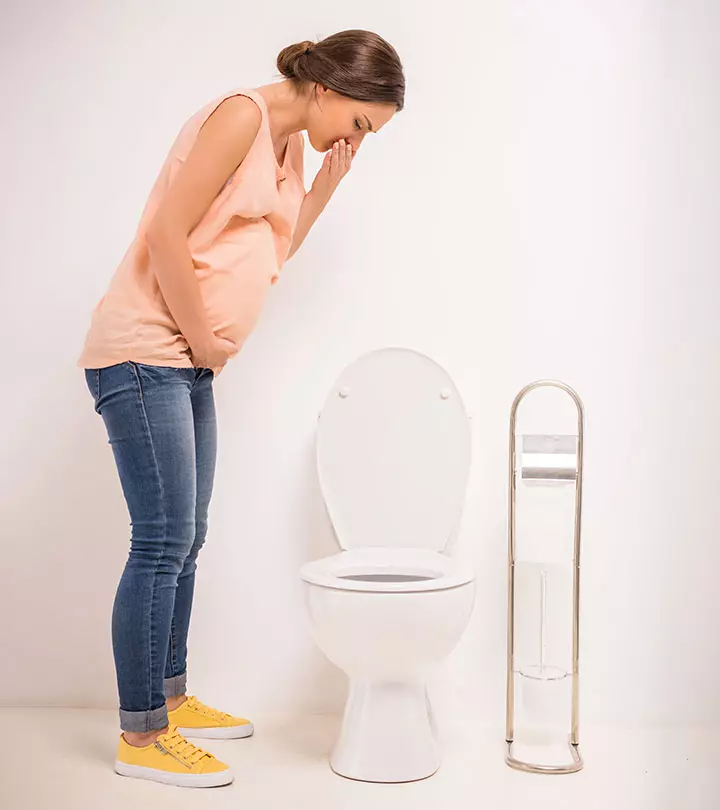
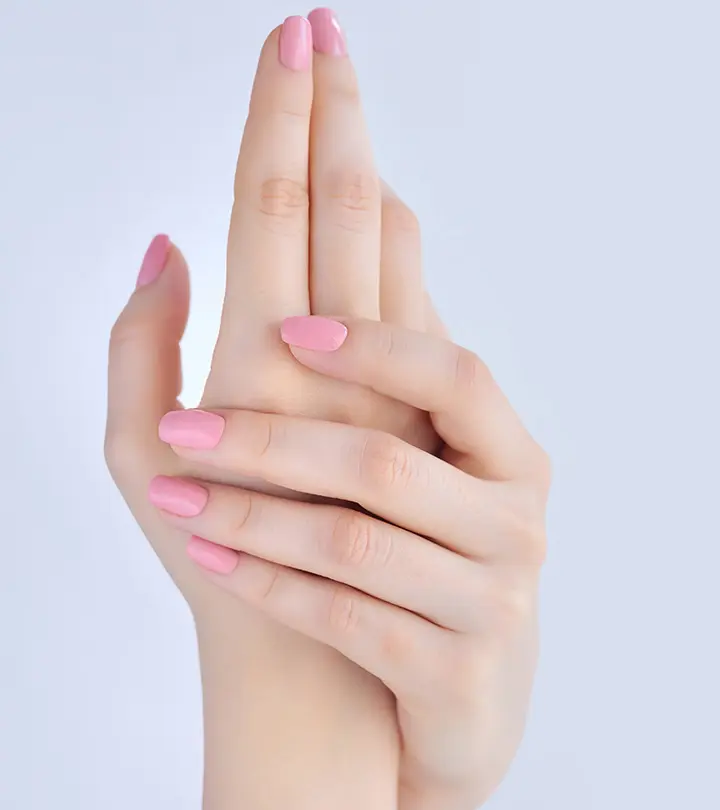
Community Experiences
Join the conversation and become a part of our empowering community! Share your stories, experiences, and insights to connect with other beauty, lifestyle, and health enthusiasts.